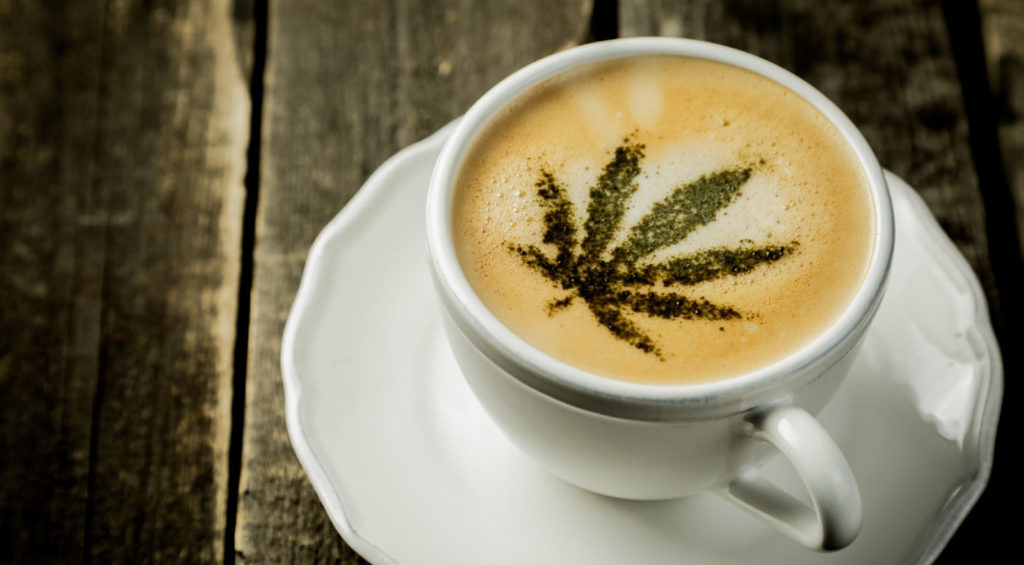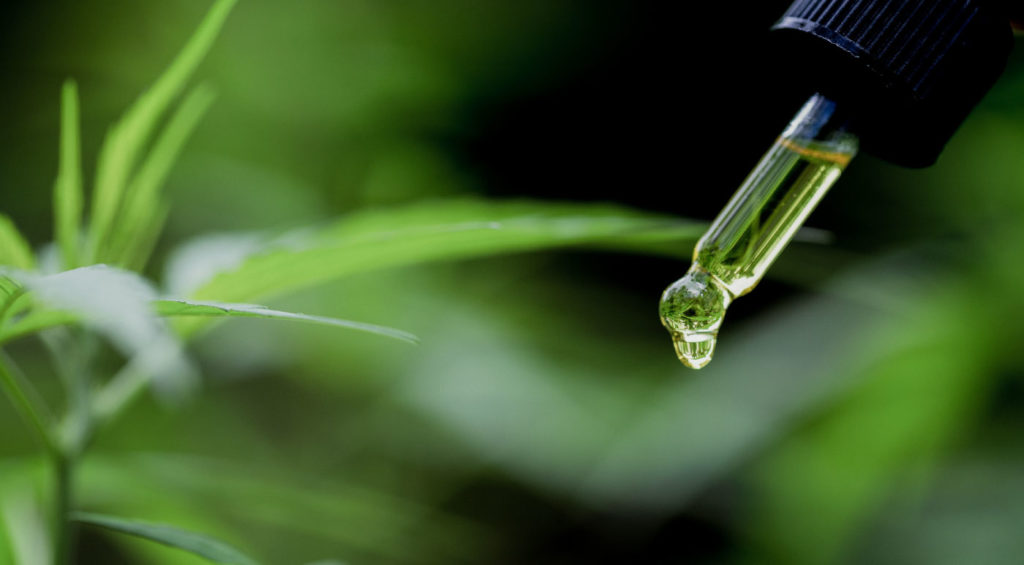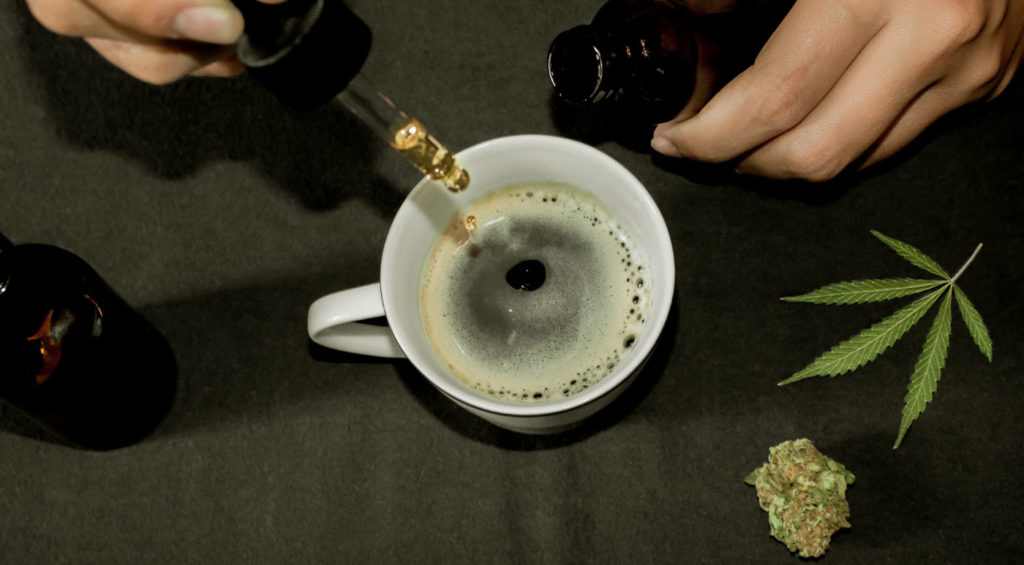
What’s better than a steaming cup of jo in the morning? For many people, a warm cup of coffee in the morning is a daily occurrence. In fact, 64% of American people report drinking coffee each day. For many, coffee gives them a boost of energy and increases their focus and concentration. However, coffee is a stimulant, and if a person drinks too much, they can experience unwanted side effects. But what about combining CBD and caffeine together?
CBD is known for its calming effect. Because of this characteristic, is seems CBD and caffeine would make a perfect pairing, right? If you look online, you will find an abundance of CBD and coffee products. But what effect does CBD have with caffeine? Do they genuinely make a good combination? Or do their effects cancel each other out? Most importantly, is it safe to use these two together?
To answer these questions, let’s dive a bit deeper into the effects caffeine has on the body as well as how CBD affects the body.
Table of Contents
- What Effect Does Caffeine Have On the Body?
- What Happens if You Drink Too Much Coffee?
- What Effect Does CBD Oil Have?
- How Does CBD Interact With Caffeine?
- Can You Mix CBD and Caffeine?
- CBD and Caffeine: Final Thoughts
What Effect Does Caffeine Have On the Body?

Caffeine is a stimulant. This means it activates the central nervous system. By activating the central nervous system, caffeine increases alertness, focus, concentration, and mental energy.
Caffeine’s stimulatory effects are through a few different mechanisms, including dopamine and serotonin release–two chemicals (neurotransmitters) in the brain which influence mood, motivation, and focus.
Caffeine also displaces a molecule called adenosine. Adenosine is a breakdown product of our brain and body’s energy molecule, ATP. When the brain, or body, uses up ATP to complete mental or physical tasks, adenosine is created and binds to receptors in the brain. By doing so, this process acts as a signal to the brain, telling the brain to sleep.
The caffeine molecule can bind to the receptors instead of adenosine, therefore, preventing the signal to sleep. As a result, people feel less tired when drinking caffeine.
What Happens if You Drink Too Much Coffee?
Although caffeine is very effective at increasing energy and focus, too much caffeine can cause unwanted side effects. Medline states that for most people, 400mg of caffeine per day is safe. This is approximately four cups of coffee per day.
If a person drinks too much caffeine, common symptoms include:
- Restlessness
- Shakiness
- Jitters
- Anxiety
- Insomnia
- Headaches
- Dizziness
- Rapid heartbeat
These side effects are certainly a downer for people who enjoy the focus and mental stamina caffeine gives them, but are also sensitive to caffeine’s potential side effects.
You may have seen CBD coffee products online, or even CBD lattes offered at your favorite coffee shop. You may be wondering why this combination is popping up. To understand how caffeine and CBD interact, it’s essential to understand the effect CBD has on the brain and body.
What Effect Does CBD Oil Have?
CBD oil, or cannabidiol, affects the brain and body through stimulating the endocannabinoid system. It activates cannabinoid receptors such as the CB1 receptors, which are scattered throughout areas of the brain that control mood, behavior, and emotions, and CB2 receptors, which modulate inflammation and pain.
People use CBD for its variety of health benefits, including its anti-inflammatory effects, anti-anxiety effects, and pain-management effects.
Unlike its sister plant, marijuana, CBD, which is derived from the industrial hemp plant, does not contain high levels of tetrahydrocannabinol (THC). Therefore, CBD products do not possess any psychoactive effects.
The effect of CBD on the brain is dependant on the dosage. At a low dose, CBD can have a stimulating effect on the brain, whereas, at higher doses, it can have a sedating effect. In other words, the effects of CBD on the brain change depending on how much you consume.
How Does CBD Interact With Caffeine?

CBD’s effect on the nervous system depends on the amount of CBD and caffeine a person consumes.
As previously noted, CBD and caffeine affect different parts of the central nervous system. Caffeine affects neurotransmitters, such as dopamine and serotonin. It also displaces adenosine resulting in wakefulness. CBD, on the other hand, primarily stimulates the endocannabinoid system, which influences mood, anxiety levels, and wakefulness.
Caffeine and low dose CBD are both stimulating. Therefore, a small dose of CBD combined with caffeine may amplify caffeine’s stimulatory effect.
However, this is not the case for caffeine, combined with a high dose of CBD. A high dose of CBD has a sedating, calming effect, which for some people, may help to counteract some of the side effects of caffeine. To date, there have not been any clinical trials on CBD and caffeine together. However, people have been experimenting with this combination.
Can You Mix CBD and Caffeine?
CBD is legal to buy, sell, and use in all 50 states of America. Coffee shops are beginning to offer CBD lattes and other beverages with a combination of these compounds. Although CBD has been legalized as a dietary supplement, the FDA has not approved it as a food additive.
In other words, adding CBD to beverages and food is not technically legal at the federal level. However, some states such as California and Colorado have approved CBD use as a food additive. CBD infused coffee and snacks seem to be a grey area currently.
It is more challenging to control the dose of CBD you consume from CBD infused coffee. Unlike a tincture or a capsule that has specific doses, the dose of CBD in infused coffee may vary from cup to cup. If you are adding a CBD tincture to a cup a coffee, it may be easier to control the CBD dosage.
Keep in mind, CBD and caffeine can have synergistic or contradicting effects. Since CBD at low doses is stimulating, and at higher doses is sedating, you may get an unexpected result if drinking CBD in your coffee. It is possible to feel alert and focused one sip, and push it overboard with the next sip and feel groggy.
For this reason, people who are using CBD to help manage the symptoms of a health condition, such as seizures or anxiety, CBD infused coffee will not likely be the best delivery method.
Each person will react differently. It will most likely take a few trial and error to find the right blend of CBD and caffeine for you. You may need to experiment with various doses, like this individual did, to find your ideal CBD and caffeine combination.
CBD and Caffeine: Final Thoughts

It is no question that CBD is exploding in America. People are using CBD to manage a number of their symptoms, such as anxiety and stress. The combination of CBD and coffee is an interesting idea given that caffeine can cause jitters and anxiety at high doses, whereas CBD has a calming, anti-anxiety effect. It is important to remember that the impact CBD has on the brain changes depending on the dosage. Each person may react differently to the combination of caffeine and CBD, so each person should exercise caution if they are trying this combination.
The legal status of CBD as a health supplement is clear. However, things are not so straightforward when it comes to CBD as a food additive. Depending on where you live, the rules may be different.
Research continues on CBD and the effects it has on the nervous system, as well as when combined with other compounds, such as caffeine. Once clinical trials are carried out, we will better understand how CBD and caffeine truly interact and the optimal dosages of both when used together.
